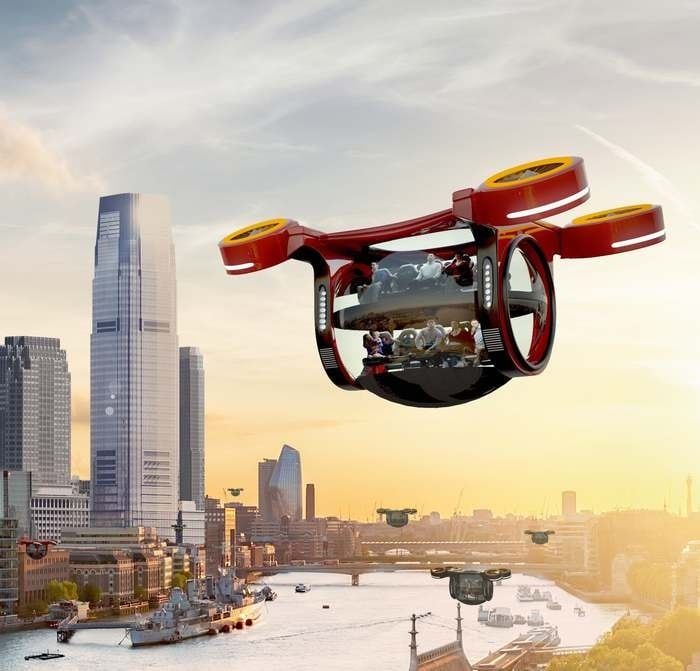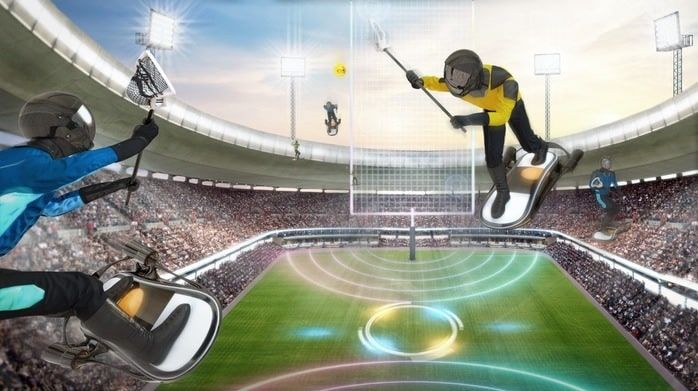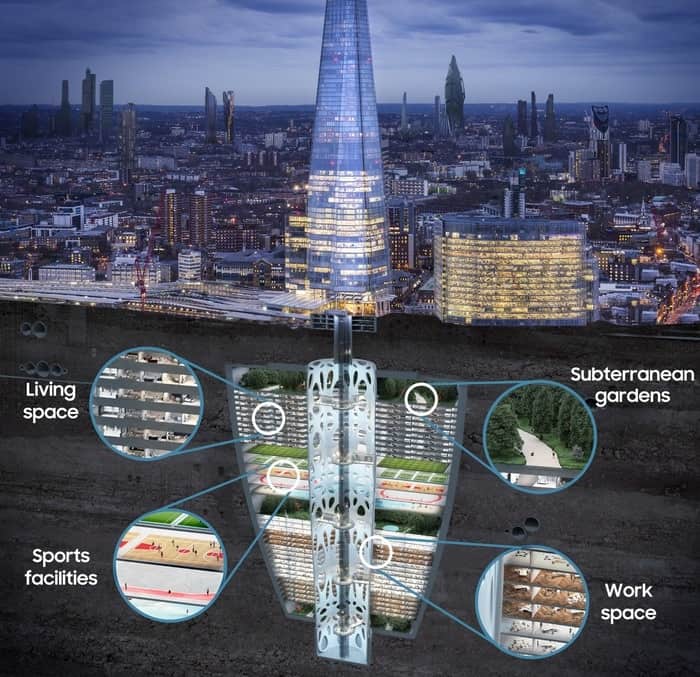This is how our world will be in the future
What will the world be like five decades from now, when we celebrate the first century since the arrival of man on the Moon and the birth of the Internet?

Air taxis and flying buses, space hotels, underwater highways, self-cleaning homes, body implants will control our health. All this which today looks like fantasy will be commonplace over the next fifty years, according to a report by British experts.
Six of the UK's leading academics and futurists worked as a team to imagine the changes in technology, health, entertainment, food, and transport over the next fifty years, and their version of that near future is shocking. Samsung's report 'KX50: the future in the spotlight' predicts that in 2069 "journeys will go up, down and even to the stars".

Travel by air, sea, and space
This work advances that aquatic highways will be created, through which subsonic transports will circulate through a system of sealed tubes that will be traveled on board capsules, to make connections, for example, between the United Kingdom and continental Europe including Scandinavia, in less than an hour.
The authors also advance that we will travel in taxis and airbuses: high-powered unmanned flying vehicles that we will have at our disposal at nearby points, traveling overland traffic, and using airspace over rivers and waterways, to create clear routes through the sky.
To travel long distances, most international city-to-city travel will involve reusable rockets, which will enter nearby space in the vicinity of the upper atmosphere. They will travel less than 20,000 miles per hour and can take us from London to New York in less than 30 minutes.
Health monitoring from within at every instant
As technology advances, there will be significant changes in medical care and nutrition, according to this study.
For example, we will have body implants and software that will work as digital companions and virtual caregivers, who will know us, know how our health evolves throughout our lives, monitor our body through sensors, and push us to make the healthiest decisions.
Printing vital tissues in 3D will provide us with instant replacements for people whose organs are damaged with no possibility of repair, and who could surpass the quality of those organs we are born with, including the eyes, endowed with improved vision at night, and the hearts or lungs capable of increasing an athlete's performance.
Eventually, insects will become one of our main sources of dietary protein, so many kitchens will be equipped on their counter with larval culture capsules, with a small drawer to harvest them, and we can even pick up a tasty 'worm kebab' or an 'insect burger'.
Flying sports and underground skyscrapers
According to this report, new forms of entertainment will also emerge, enabling us to watch aerial sports matches, during which we will be able to cheer on our favorite teams as they fly on hovercraft around the stadium, Quidditch style, the magical sport invented from Harry Potter's novels, which is played by flying over magical brooms.

We will also be able to watch interactive movies and enjoy computer games at home, using refined and affordable tactile suits that will create tactile sensations and deceive our five senses, allowing us to physically feel films and video games.
In 2069 will also be common holidays in space, for which there will be luxury space hotels orbiting the Moon or other planets, generating their gravity, predict British academics and futurists.
They also predict that by that time we will be able to live and work in 'subterranean skyscrapers', buildings similar to inverted towers, that will sink many plants in the subsoil, being resistant to earthquakes, and that the self-cleaning of houses and offices will be generalized, using robotic technology.

HIGHLIGHTS:
In 2069 urban transfers will be made by air, long-distance journeys will be made aboard underwater capsules and we will go on holiday to the stars.
We will witness aerial sports matches, in which the teams will fly in hovercraft around the stadium, in the style of Quidditch, a sport in flying brooms of the magic world of Harry Potter.
Within five decades we will be able to live and work in underground skyscrapers, buildings similar to inverted towers, which will sink many plants in the subsoil, being resistant to earthquakes.
The authors of the KX50 report are Jacqueline de Rojas, president of techUK; Dr. Rhys Morgan, Director of Engineering and Education at the Royal Academy of Engineering; and Professor Dale Russel, a specialist advisor on design engineering innovation at the Royal College of Art, along with futurologists Morgaine Gale, Maneesh Juneja, and Matthew Griffin.




